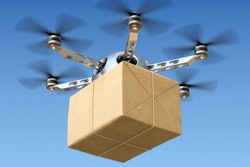
The Internet of Things (IoT) will play a pivotal role in enabling the transport and logistics sector to reduce its carbon footprint, according to Inmarsat research.
The research conducted by Vanson Bourne for ‘The Future of IoT in Enterprise’ report collected responses from 100 large global transportation companies and found that 44 percent of companies are prioritizing environmental monitoring as a key area for IoT deployment. Moreover, 15 percent stated that they had increased their environmental sustainability as a direct result of their IoT deployments, and a further 65 percent expected to do so in future, highlighting the effectiveness of the technology in this area.
“IoT could have an immediate and considerable impact on the emissions of logistics companies today. For example, CO2 emissions can be exacerbated by faulty equipment, engine damage and poor route planning but IoT can address these issues by utilizing smart telematics devices, diagnostic sensors and accelerometers to gather engine status data and automatically notify fleet managers with instant alerts of damage or faults. This information can be used to limit engine wear-and-tear and increase average miles-per-gallon (MPG), indirectly reducing overall emissions and minimizing wastage by extending the lifespan of each vehicle,” Mike Holdsworth director of transport at Inmarsat Enterprise said. "There are multiple opportunities for businesses, from collecting, storing and analyzing real-time data from crowdsourcing or sensors located in vehicles and machinery across their supply chain and it will be invaluable for those hoping to reduce their carbon footprint... By utilizing the IoT over a satellite connection and making immediate strategic adjustments, transport organizations will have a distinct advantage over their competition in achieving environmental sustainability.”
Inmarsat’s L-band services offer a global satellite network that can provide critical connectivity for reliable end-to-end communications with up to 99.9 percent uptime, even in isolated or remote environments with minimal or no mobile coverage.













